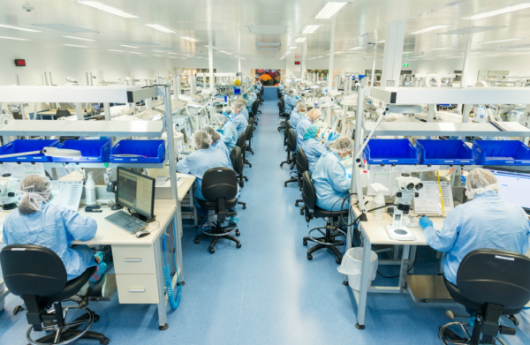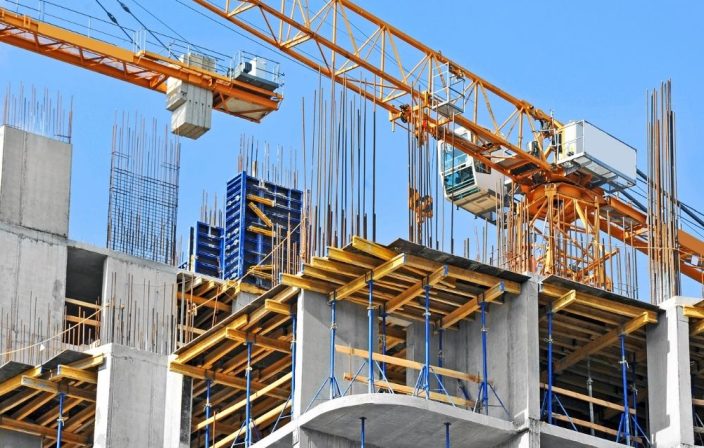Andrew McKellar panel interview with Patricia Karvelas, RN Breakfast
16 Jun 2022
|Transcripts
Event: Andrew McKellar panel interview with Patricia Karvelas, RN Breakfast.
Speakers: Andrew McKellar, chief executive Australian Chamber of Commerce and Industry; Sally McManus, secretary Australian Council of Trade Unions; Patricia Karvelas, host RN Breakfast.
Date: 16 June 2022.
Topics: Fair Work Commission annual wage review outcome, inflationary pressure on business, cost of living pressures, business profits, workforce shortages, consumer spending, delay for tourism, hospitality and aviation awards, national wage case process.
E&OE
Patricia Karvelas, host RN Breakfast: At a time when the cost of everything seems to be going up, a decent pay rise does sound appealing. The Fair Work Commission’s decision yesterday to lift the minimum wage by 5.2 per cent has been welcomed by unions and the federal government, but it’s sent shockwaves through the business community, which is already struggling with higher costs. For both perspectives, we are joined by the secretary of the ACTU, Sally McManus, and the CEO of the Australian Chamber of Commerce and Industry, Andrew McKellar. Welcome to both of you.
Sally McManus, secretary Australian Council of Trade Unions: Good morning, PK.
Andrew McKellar, chief executive Australian Chamber of Commerce and Industry: Good morning. Great to be with you.
Patricia: Let’s start with you, Andrew McKellar. The wage rise for the lowest paid workers is more than what business wanted, but less than what unions called for. Doesn’t that mean it strikes the right balance?
Andrew: Look, I think yesterday’s decision was very much towards the upper end of the outcomes that could have been expected. Certainly, it was a lot more than we were submitting, which was an increase of 3 per cent. We felt that that was responsible. We agree that many workers do deserve a pay increase at this time. You’re right. Cost of living is going up, but so too is the cost of doing business. And I think we’ve got to strike the right balance at a time when inflation is becoming the number one economic challenge in this country.
Patricia: Sally McManus, you’ve welcomed the decision, but it comes at a time when business import costs are soaring for things like energy, materials. How can businesses afford an extra $7.9 billion without passing the costs onto customers who include workers?
Sally: Oh, they’re already passing on the costs of increased inputs onto workers and workers were before this pay rise. And even with this pay rise, got real wage cuts. So I think the question at the bottom of all of that is can business afford it? And all of the indicators, all of the evidence and the Fair Work Commission added all of this up. They looked at it all. So it’s not just my opinion. Is that they can afford it. Profits are actually up considerably at the moment. Sales are up as well. All the indicators for business are actually good. If you said, well workers should continue to have real wage cuts and pay for an inflation problem they didn’t cause, I think that’s morally bankrupt. And I also think it’s economically illegitimate. I mean, you’re basically saying it’s okay then for this continual transfer of wealth to businesses away from people. And this is one of the things that president Ross looked at. He said some people will feel as though they’re not sharing in the recovery and the wealth of the country. And that would be the case if we didn’t put up wages at this time.
Patricia: That’s an interesting argument that’s just been put there by Sally McManus, Andrew. That actually, if you look at the profits of business, they are substantial. Yes. You’ve got more pressures on you. There’s no doubt about it globally. But at the same time, you can afford it. Can’t you?
Andrew: Oh, I think we’ve got to dig into the data that sits behind that. And I think when you start to do that, you’ll see a very two speed economy. Yes, some businesses, some sectors are doing very well in the main. That’s going to be around mining and resources at a time when commodity prices are going through the roof. And there are great returns in some of those sectors. But if you look across the mainstream of business, if you look at what’s happening particularly, 98 per cent of all businesses are small business. And I think just walk down the main street in any town, go into the CBD of any of our major cities. And what you’ll see still very much are small businesses, cafes, restaurants, retail stores who’ve been struggling to keep their doors open. They’re not making super profits or anything like it. They’ve been struggling to keep going through the pandemic. They’ve kept their staff on. They’re facing very challenging economic times now. And now we’ve just put an extra $7.9 billion in expense on their bottom line.
Sally: But all of those businesses and this is what they all tell me is their number one issue is actually keeping and finding staff at the moment with the skill shortage and that your local cafe and a whole lot of the smaller retail places have already put up their wages way more than 5 per cent. Or even if you said not way more, most of them have paid pretty much all of this increase anyway months ago and won’t be affected by this pay increase. So I think that if we thought that we were going to keep wages down, you won’t be able to keep staff at all in those places. I’m not sure where you see circumstances. And I understand what Andrew’s saying about some small places are struggling. I think the reason why they’re struggling is they’re having trouble holding onto staff at the moment.
Patricia: Andrew, that is an interesting point. And that is the story that I keep hearing on radio every day that actually businesses need to retain staff. This is happening anyway, isn’t it?
Andrew: Well, it’s one of the most pressing challenges that business is facing at the moment. Yes, we do have a very tight labour market. Businesses are struggling with supply chain issues, huge disruption there. Cost of materials going up. We’re seeing energy prices going through the roof at the moment. So look, it’s a difficult balancing act. I think at the end of it all, we would say we just have to be very cautious about tipping fuel on what is looking like a pretty nasty inflation fire that’s starting up. But not just here, but around the world. And what we don’t want to get into is a circumstance where prices keep going up. We start chasing those higher prices. Interest rates are also starting to increase, and it all just gets chewed up in this sort of vicious cycle.
Sally: There’s not much chance of that happening with wages though. I mean, this is still a real wage cut for everyone. The Reserve Bank governor said that inflation’s likely to get to 7 per cent. And so this increase is way less than what that is. And I think the other thing that gets missed out of this is consumer confidence and consumer spending. The people who spend in all those local businesses are average working people. And if they have their wages go backwards, their customers obviously are going to have less to spend. So I think one of the worst things that could happen for the economy is actually denting consumer spending by continuing to take money off people. It’s all getting gobbled up in rent and energy and other things. And so no discretionary spending means no money going to those businesses.
Patricia: That’s interesting actually, isn’t it Andrew? If you look at spending, given inflation. Yeah. That rents, all of those core things that you have to pay for, that aren’t discretionary, are becoming the prevalent spending. So how does it kind of match up then, the argument you are making, given that’s where the spending’s going?
Andrew: I think here again, we’ve just got to avoid the risk that we get into a situation where we are chasing our tail on this. Yes, cost of living is going up, but if we keep tipping more fuel on this inflation fire. And one of the things I would say here is there is a bit of a myth about what’s been happening with real wages over the past six years. If you look at the past six years of decisions in the Commission, in fact, they’ve gone up in real terms by 6.3 per cent. And over the same time productivity didn’t grow by that much as well. It was only just over 5 per cent. So, I think here we are painting somewhat of an artificial picture. Of course, there is pressure at the moment on cost of living and on real wages, but we won’t increase real living standards if we don’t back that up with productivity growth as well. And that’s what we’ve got to focus on from here.
Patricia: Sally McManus, the Fair Work Commission decision also affects the award wage for workers in sectors like aviation, the restaurant hospitality industries, which is due to rise by 4.6 per cent in October. Aviation, for example is only just starting to recover after more than two years of a pandemic. And we know there have been huge losses. What if this puts paid to the recovery?
Sally: So most aviation workers, so you’re talking about your flight attendants and your pilots obviously, and people that check you in earn way more than what the minimum is in those awards. So they won’t be affected by this. The people who will be affected by this are those cleaners and those baggage handlers where they’ve been outsourced and they’re working at bottom dollar, like $22 an hour to clean planes for big airlines. I won’t mention their names. So those workers they’re having their pay held back. Now I can tell you they’re very busy at the moment in terms of, and everyone knows, in terms of what’s happening with flights at the moment. And the companies are having trouble keeping workers, because people are saying, what am I going to do? Am I going to do this baggage handling job? Or am I going to work in retail? And the retail workers will get this pay increase and the baggage handlers won’t. So I don’t think that that is a good decision. I think that wages should have gone up for those workers at the same time as everyone else.
Patricia: Andrew McKellar, you’ve said that the Fair Work Commission decision means the existing national wage case process has had its day and needs to be overhauled. What are you calling for here?
Andrew: Well, I do think there is a point that has to be examined here. And this goes to the issue of what does the minimum wage actually cover? So there are about 180,000 people in the economy who are in the first instance covered by the minimum wage decision. And those are the people that are at the bottom end of the wage scale. And of course, I think we’ve got to be very mindful of that. Now I will say in Australia now we have, I think, the highest level of minimum wage anywhere in the world after this decision. So I think internationally, we’re not that badly off in those terms. But the issue with this decision is it cascades through the so-called modern award system, capturing in the end more than 2.6 million workers. So, it’s sort of the last vestige of a centralised system of wage fixing rather than allowing those wage outcomes to be determined on an industry-by-industry, enterprise-by-enterprise basis, depending on the circumstances that each of those sectors face. So we are losing flexibility. And I think we need to look at how that applies in the future.
Patricia: Sally, quick response on that.
Sally: Yeah. Two things there. First of all, we don’t have the highest minimum wage in the world. We used to, but it’s been slipping pretty badly. Most other countries now have adopted 60 per cent of the average wage. That’s the UK, who’ve already added. New Zealand. All of these states in the US are now beyond what we are too. And secondly, that argument that’s just been put, essentially says that well, that people would get very small wage increases. They’re saying that the employers should decide what pay increases people get, and we know what the employers are good for in this wage outcome. I’ll just say, well, thank God we’ve got a situation where we’ve got an independent umpire making these decisions.
Patricia: All right. We’re out of time and we’ll see what the audience makes of it. Thank you to both of you.
Andrew: Great. Thank you very much.
Sally: Thank you. See you.
Patricia: Secretary of the Australian Council of Trade Union, Sally McManus. And Andrew McKellar, who’s the head of the Australian Chamber of Commerce and Industry.


